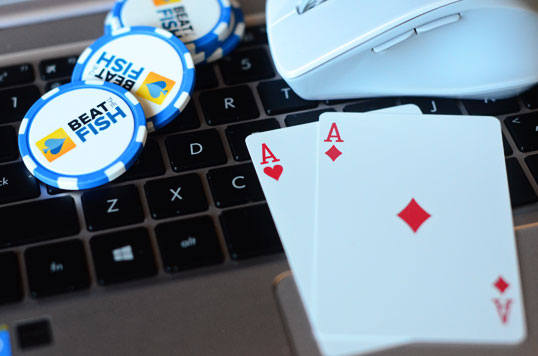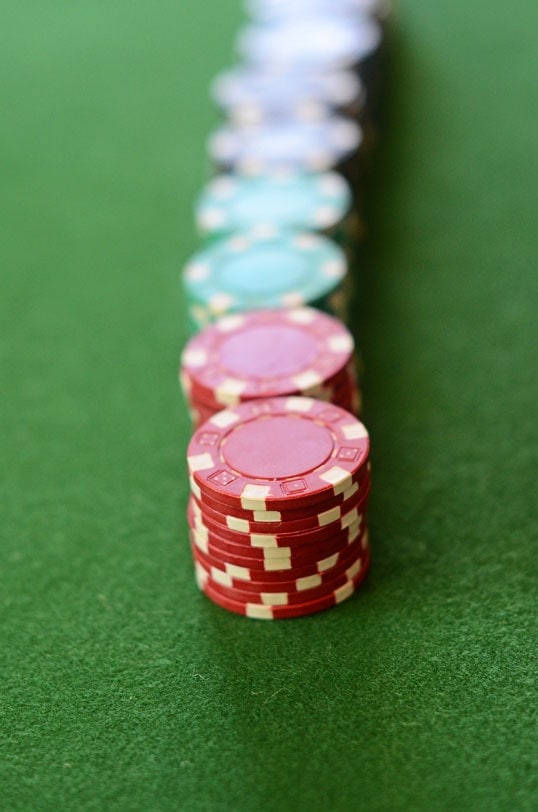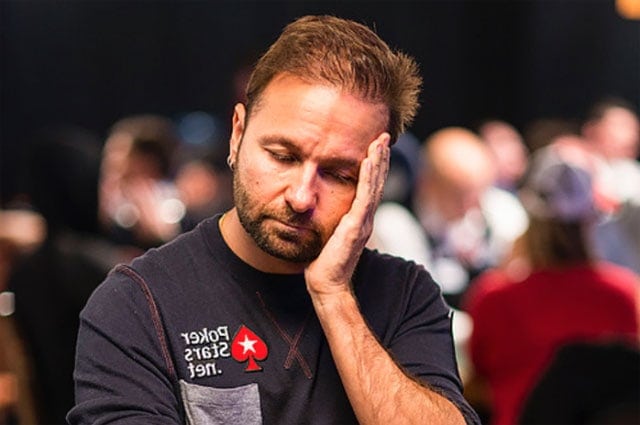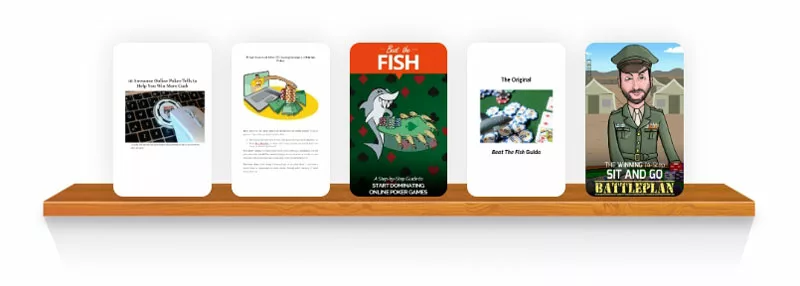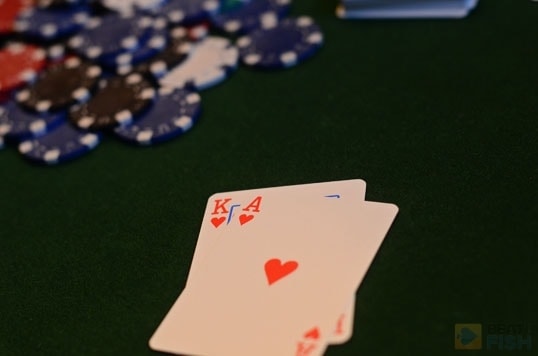
Poker tournaments have surged in popularity since ESPN started showing the World Series of Poker 24 times a week in the early 2000’s.
In addition to all of the official poker tournaments that land based and online poker rooms hold, you can find charity and benefit poker tournaments, private club tournaments, and underground poker tournaments.
Players who’ve played in local tournaments will find playing in online tournaments to be almost exactly the same. Likewise, an online tournament player will be able to join a land-based tournament and have no trouble feeling right at home.
But what if you’ve never played poker, or never played in a poker tournament specifically?
Can you play the same way in a poker tournament as you do in cash games and hope for the same results?
Table of Contents
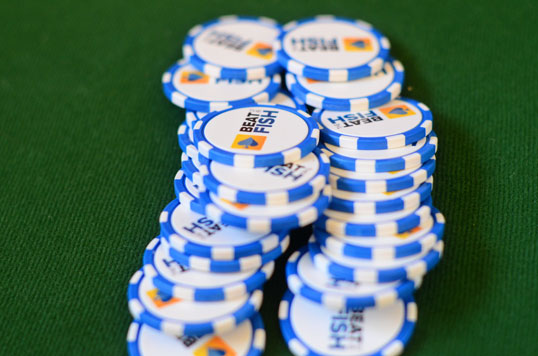
Take my poker tournament quiz and make sure you’ve got the basics covered
I’ve put together a poker tournament quiz designed for beginners or for more advanced players to do a self-check on their fundamentals.
The last few questions are more concerned with overall poker tournament strategy and mindset, but they should help you start thinking a little differently than you do about cash games. Enjoy.
Beginner poker tournaments quiz answers in text format
Beginner Poker Tournament Quiz Questions and Answers
Question 1
What’s a Sit and Go tournament?
Answer 1
Sit and go tournaments were made popular by online poker rooms. These tournaments are almost always single-table affairs and players seem to like them because they’re fairly fast in comparison to multi-table tournaments.
Six-player tables pay the top two finishers and the nine or 10 player tables usually pay the top three finishers.
Question 2
What’s a satellite tournament?
Answer 2
Satellite tournaments are ones that the winner or top finishers get entry to a bigger tournament instead of cash prizes.
Many poker rooms run satellite tournaments to gain entry to the WSOP Main Event. These can be single-table or multi-table tournaments.
Question 3
What’s a freeroll poker tournament?
Answer 3
Freeroll poker tournaments offer real money prizes but don’t cost anything to enter.
Most freerolls are offered by online poker rooms, but some land-based rooms offer them for players who complete a minimum number of hands or hours at the real-money tables.
Question 4
What is blind structure?
Answer 4
The amount of the blinds on each level is the blind structure and it’s important to know how fast the blinds go up. When the blinds go up slowly you can play a slower game, waiting to get your money in when you have a clear advantage.
When the blinds go up quickly you have to take a few more chances because the blinds will eat up your stack if you aren’t quickly building it.
Question 5
Is the follow statement true or false? I’m a great cash game poker player so I should be able to be a good tournament player without changing much of my game.
Answer 5
If you have to pick an answer you’d probably have to go with true, but this is kind of a trick question.
If you’re a winning cash game poker player you have all of the skills you need to be a winning tournament player, but you’ll need to make some minor adjustments to maximize your tournament poker winnings.
You have to be aware of the blinds in relation to the size of your stack. You also need to be aware of the size of your opponent’s stacks. Stack size is important in no-limit cash game play, but it’s even more important in tournament play.
Question 6
I see the pros on television getting all-in with Ace-King against lower pocket pairs all of the time. I’ve read these hands are basically coin flips.
Since the pros are always doing it shouldn’t I do it every chance I can, too?
Answer 6
The best tournament players prefer to never have to get in a coin flip situation. You lose a coin flip 50% of the time so they have a 50/50 chance to get knocked out of the tournament if they get all-in on a coin flip hand.
If this happens twice they only have a 25% chance of surviving. The third time it lowers your chance of surviving to 12.5%. The chance of staying alive goes down as you add coin flips.
You usually only see the exciting hands edited to make a decent TV show so don’t be fooled. Often what you see is a player getting short stacked so they’re forced to make a big play. They often push all-in with Ace-King or a small pocket pair.
Question 7
The pros are always bluffing in TV tournaments. It seems like they bluff way more often than I’m used to bluffing in my cash game play.
How often should I bluff in a tournament?
Answer 7
If you’re a winning cash game player then you should probably bluff in tournaments about the same amount of time as you do in cash games. If you’re a losing cash game player you should probably bluff less in tournaments than you do now.
Bluffs are shown on television because they make good TV. Most of the routine dull hands are cut out so it just looks like the pros bluff more.
Question 8
You’re playing in a large multi-table tournament and the top 100 finishers end up in the money. The tournament has 110 players left and you have an average chip stack. If you simply fold every hand you can reach the money with no problem.
An early position player moves all-in and another player calls. They both have larger chip stacks than you. You look down to find pocket Kings.
What should you do?
Answer 8
This is a clear folding situation. This close to the money two large stacks rarely go at it for all of their chips unless they both have big hands. The caller almost has to have pocket Aces, or at least Ace-King to make the call.
I don’t know the exact possibility, but it’s got to be close to 100% that one of the players has pocket Aces or at least one Ace in this situation.
Question 9
You’re in the same tournament as the last question with the same betting situation, but you look down and see pocket Aces.
What should you do? Assume you won’t be able to pay the rent if you miss the money.
Answer 9
If you need to pay the rent you shouldn’t have entered the poker tournament, but you have to fold in this situation. You’re a clear favorite against two players when you have pocket Aces, but you still won’t win all of the time.
With a guaranteed spot in the money if you keep folding you can’t call. This (and when you’re close to the prizes in a satellite-type situation) is just about the only type of situation where you should fold pocket Aces pre-flop.
Question 10
What would your answer to the last question be if you were more interested in winning the entire tournament than simply sneaking into the money?
Answer 10
In this case you call. If you triple up in this situation it puts you in a position where you have enough chips to make a serious run at winning the tournament.
This is why you need to be properly bankrolled in all situations. You need to be able to make the call here because the prize for winning a big tournament is exponentially higher and often could be life-changing. You don’t want to feel forced to fold.
